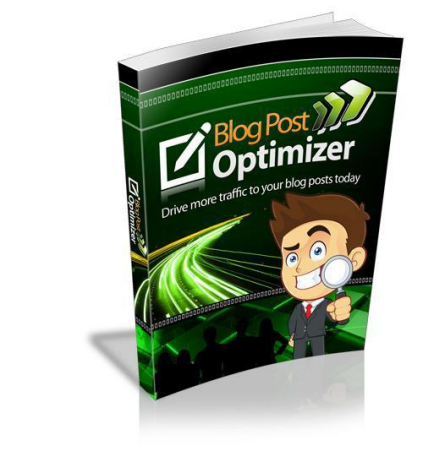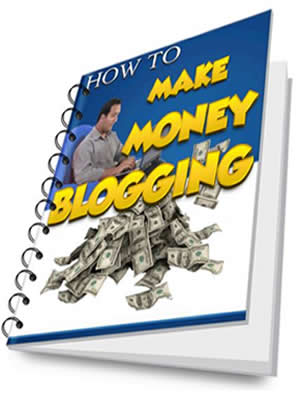How Book Marketing Has Evolved in the Age of Social Media
The landscape of book marketing has drastically changed over the last couple of decades, with the rise of social media platforms leading the charge. Where once authors relied heavily on traditional book tours, publisher-backed publicity, and word-of-mouth within literary circles, the digital age has ushered in a new era of marketing, one that allows authors, independent publishers, and book enthusiasts to connect directly through social media.
Today, social media is a vital tool for authors to promote their books, grow their readership, and create lasting personal connections with their audiences. But how did we get here, and what does the shift from traditional marketing strategies to social media-driven campaigns mean for writers and readers?
The Traditional Book Marketing Landscape
Before social media, book marketing was largely in the hands of publishers and bookstores. They controlled the primary channels for promoting books—press releases, print ads, book reviews, author interviews, and, of course, book tours.
For most authors, especially newcomers, getting noticed was a monumental challenge. A successful book marketing strategy relied heavily on traditional media coverage, like newspaper reviews or coverage on morning talk shows, which required significant time and financial resources. Even if an author secured a deal with a traditional publisher, they often had to rely on the publisher’s marketing team, which might not have been focused on the success of the book if it wasn’t expected to be a blockbuster hit.
Then came social media—and everything changed.
The Rise of Social Media: A Game-Changer for Authors
With the arrival of platforms like Facebook, Twitter, Instagram, and more recently, TikTok, authors found themselves with the ability to reach their audiences without relying solely on traditional publishing routes. What once required high costs and professional connections could now be achieved with a good strategy and some creativity.
Breaking Down the Impact of Social Media
The major impact of social media on book marketing is the ability to directly engage with readers. In the past, authors had limited opportunities to connect with their audience, and book sales largely depended on brick-and-mortar stores and big media exposure. Now, authors can build communities, engage with fans, and market their books in ways that simply weren’t possible before.
Here’s how different social media platforms have influenced book marketing:
-
Facebook: This platform remains one of the most popular spaces for authors and publishers to connect with readers. Many authors create Facebook Pages to share updates, interact with fans, host giveaways, and even run Facebook Ads for wider book exposure. Facebook also allows authors to join book groups where they can promote their work in an organic and personal way.
-
Instagram: Bookstagram, a community of book lovers and readers on Instagram, has taken the world by storm. Authors and readers alike use this platform to share book reviews, photos of books, and personal insights about the reading experience. Hashtags like #bookstagram, #amreading, and #bookrecommendations allow authors to discover a wealth of niche audiences who are passionate about reading and literature.
-
Twitter: With its quick-paced environment, Twitter allows authors to participate in conversations about books and writing. Through hashtags like #WritingCommunity and #AmWriting, authors can join discussions, network with other writers, and engage with readers. It’s also a valuable platform for connecting with journalists and industry professionals, particularly for book reviews and interviews.
-
TikTok: The rise of TikTok has created a book marketing revolution, particularly among younger readers. BookTok, a subcommunity of TikTok, is incredibly influential when it comes to book recommendations and trends. Users create videos discussing books, sharing recommendations, or even showing their latest book hauls. It has led to viral successes for several books, turning them into bestsellers virtually overnight. For authors, it offers the chance to engage with readers directly and quickly generate buzz.
The Direct-to-Consumer Shift
In the traditional book marketing landscape, the focus was on getting a book into the hands of bookstores and then relying on those sales channels to push it to readers. However, with social media, the emphasis has shifted toward a more direct-to-consumer approach. Authors can now use platforms to promote their books directly to their followers and fans, without the need for intermediaries like bookstores or publishers.
This shift has given rise to self-publishing and independent authors who leverage social media platforms to connect with readers and market their work. Sites like Amazon allow authors to publish their books digitally or physically without needing the backing of a traditional publishing house. Self-publishing has democratized book marketing, enabling authors to craft their own stories without relying on publishing gatekeepers.
For these independent authors, social media is not just a tool—it’s an essential platform for finding their audience, building a personal brand, and generating sales. With the right marketing techniques, even an unknown writer can build a successful career without signing a deal with a major publishing house.
Book Influencers: The New Reviewers
Another shift that social media has brought about is the rise of influencers, particularly in the form of book bloggers, YouTubers, and Instagrammers. These individuals have amassed large followings by sharing their reading experiences, reviewing books, and recommending titles to their followers. Their influence has replaced or supplemented traditional book critics, as many readers turn to social media to find their next read.
Authors can now reach out to book influencers directly, offering them copies of their books in exchange for honest reviews or promotional posts. Word-of-mouth marketing has always been essential in the book industry, but with influencers, that word-of-mouth has a wider, more immediate impact than ever before.
Influencers are also able to shape trends within the literary world. Thanks to BookTok, specific genres like romance, fantasy, and thriller have surged in popularity, all thanks to viral posts from readers who share their book recommendations. For authors, getting their books into the hands of these influencers can result in a significant increase in visibility and sales.
Paid Ads and Algorithms: Navigating the New Marketing Tools
Social media platforms like Facebook and Instagram also offer paid ad services that allow authors to target their advertisements to specific demographics, interests, and behaviors. These ads allow authors to get their books in front of the right readers, even if those readers aren’t already following them.
Paid advertisements on social media can be a highly effective way to expand an author’s reach, especially for those just starting out. For authors with a budget, these platforms provide tools to track the success of their ads and refine their strategy over time.
At the same time, algorithms play a significant role in the visibility of books on these platforms. Social media platforms prioritize content that engages users, which means that books or posts with high engagement (likes, comments, shares) are more likely to appear in others’ feeds. This creates a need for authors to generate meaningful engagement and create content that resonates with their audience.
Challenges of Social Media Marketing for Books
While social media has made book marketing more accessible, it also comes with its challenges. It’s easy to get overwhelmed by the constant demand for fresh content, especially when dealing with multiple platforms. Additionally, building a loyal following requires consistent effort, and even with a solid marketing strategy, not every post will go viral.
Another challenge is the rise of "spammy" marketing tactics. With the increasing number of authors and publishers vying for attention online, standing out can be a challenge. Too much self-promotion or an over-reliance on giveaways and discounts can lead to audience fatigue.
Lastly, authors need to maintain an authentic voice in the marketing process. Readers can tell when an author is simply using social media as a sales platform, rather than a space for genuine interaction. Authenticity is key to building relationships and long-term reader loyalty.
Conclusion
The rise of social media has revolutionized how books are marketed, offering authors and publishers new ways to reach readers, build communities, and grow their brands. While the challenges of social media marketing are real, the rewards are vast for those who approach it strategically and authentically. With a well-rounded, consistent marketing approach across multiple platforms, authors can transform their book marketing into a highly effective and enjoyable experience. Whether they’re self-published or traditionally published, the opportunities social media offers to promote and sell books are boundless, making it an essential tool for any modern author.








